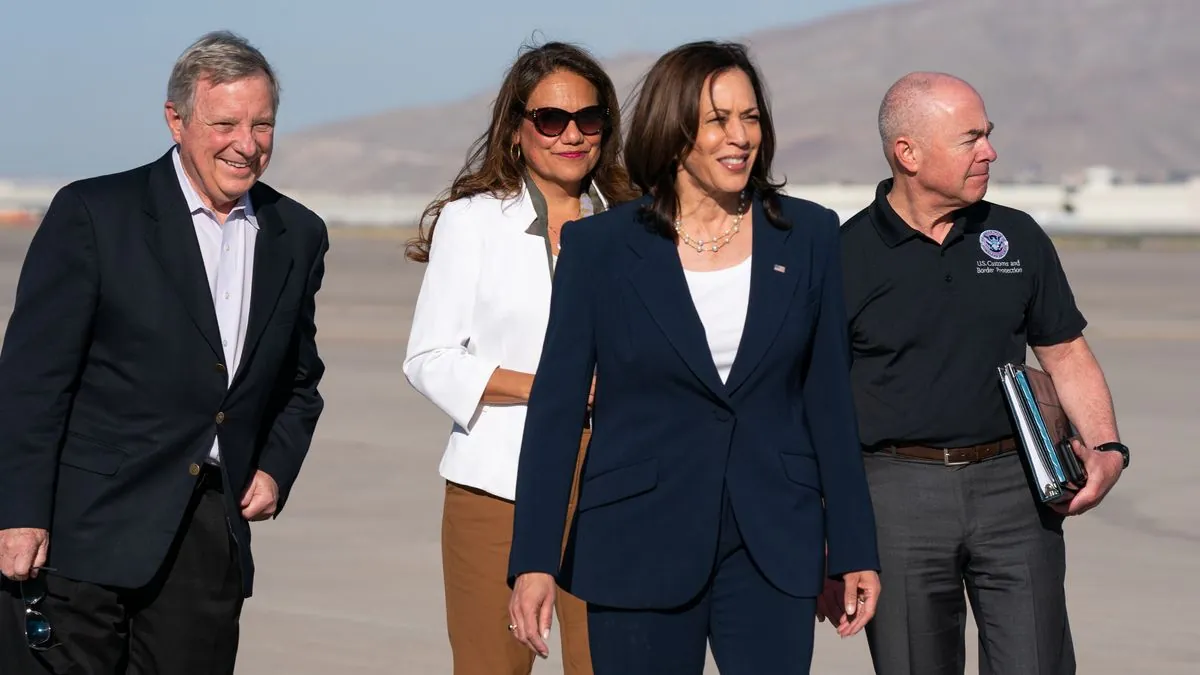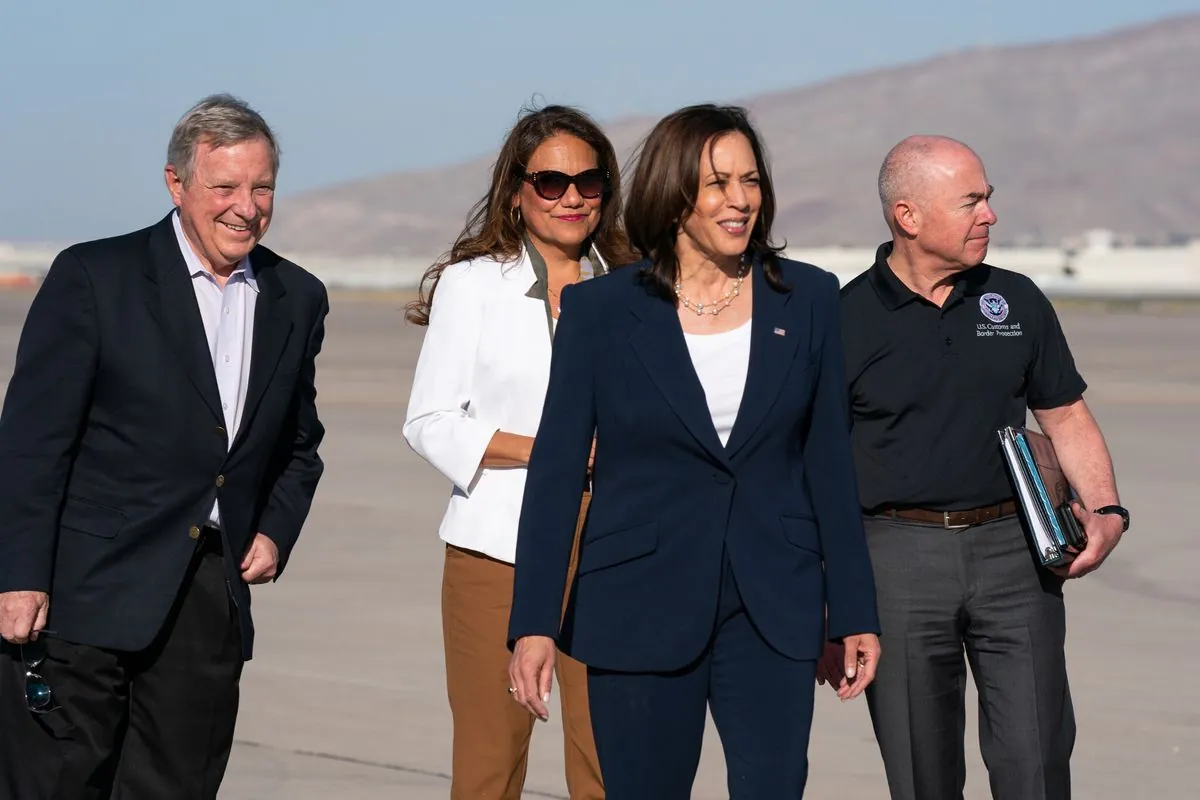Harris to Propose Stricter Asylum Measures in Arizona Border Speech
U.S. Democratic presidential candidate Kamala Harris plans to call for tighter asylum and border control measures in Arizona. The proposal aims to lower thresholds for implementing and lifting asylum bans.

In a significant policy announcement, Kamala Harris, the U.S. Democratic presidential candidate, is set to propose more stringent asylum and border control measures during a speech in Douglas, Arizona, on September 27, 2024. This border town, situated directly across from Agua Prieta, Sonora, serves as a symbolic location for addressing immigration issues along the 1,954-mile U.S.-Mexico border.
Harris's proposal aims to modify the current asylum ban measure implemented by President Biden in June 2023. The existing policy allows for quick deportations or returns to Mexico when the weekly average of daily border arrests exceeds 2,500. Harris suggests lowering this threshold, effectively triggering the ban at a reduced number of illegal crossings.
Moreover, the Democratic candidate intends to make it more challenging to lift the emergency authority. Her plan requires the average number of border crossings to drop below the current level of 1,500 before the shutdown can be lifted, according to campaign officials.

This proposed policy shift comes at a time when the U.S. immigration system faces significant challenges. As of 2024, the U.S. has been the world's top recipient of asylum applications since 2017, and the immigration court system is grappling with a backlog of over one million cases. These issues underscore the complexity of the current situation that Harris aims to address.
The concept of asylum, a form of protection granted to individuals who can demonstrate a well-founded fear of persecution in their home country, has been a cornerstone of U.S. immigration policy since the Refugee Act of 1980. However, the system has undergone numerous changes over the years, including the introduction of "expedited removal" in 1996 and the controversial "Remain in Mexico" policy implemented in 2019 and suspended in 2021.
Harris's proposal represents the latest in a series of attempts to manage the complex issue of border control and asylum seekers. It's worth noting that while the U.S. Constitution does not explicitly mention immigration or border control, the Supreme Court has consistently ruled that the federal government has broad powers in this area.
As the first woman, first African American, and first Asian American vice president in U.S. history, Harris brings a unique perspective to this contentious issue. Her approach reflects the ongoing debate surrounding immigration terminology, with many advocating for the use of "undocumented immigrant" over the outdated and offensive term "illegal alien."
The speech in Douglas is expected to spark intense discussion about the future of U.S. immigration policy. As the presidential campaign progresses, it remains to be seen how Harris's proposals will be received by voters and how they might shape the broader national conversation on border security and asylum seekers.


































